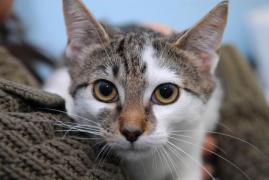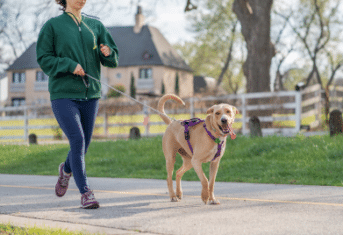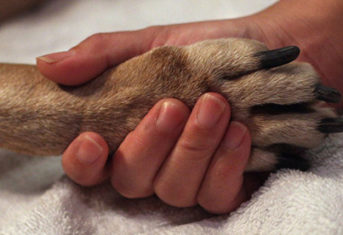Getting Another Cat After a Diagnosis of FIP

Getting Another Cat After a Diagnosis of FIP
June is Adopt-A-Cat Month® and to celebrate felines, I will devote one blog a week to them during the month of June.
Recently, I had a series of conversations with a pair of cat-owning clients about the diagnosis of feline infectious peritonitis (FIP) in their beloved cat. I use the term “diagnosis” a bit cautiously since one of the difficulties in these conversations is the lack of a specific diagnostic test for this devastating disease. Contradiction defines FIP. The only clear feature of this disease is that it affects cats. Feline infectious peritonitis is infectious, caused by a coronavirus, but the FIP-causing form of the virus appears not be too highly contagious. Peritonitis, or inflammation of the abdominal cavity, is only one feature of this systemic disease, which can cause ocular inflammation, neurological signs, liver problems, and fluid around the lungs. If that list of problems sounds bad, it gets worse. Feline infectious peritonitis is invariably fatal. My most recent conversation with this cat-owning- family has centered on their wish to add another cat to their household without causing themselves FIP heartbreak all over again.
The easy part
Coronaviruses, the FIP virus included, are not very sturdy viruses and can be removed from the household environment by common household cleaners like bleach. There is no need to dispose of bowls, blankets and litter boxes since the dishwasher, clothes washer and a good scrub will decontaminate these articles. But the extra cautious cat caretaker might want to start fresh for the new arrival. The entire home should be carefully vacuumed to remove any traces of old cat litter (and fecal contamination) from the environment. Any traces of the virus should dissipate in about one to two months, and after that time, a new cat may re-enter the home as soon as the family is emotionally ready. If the family has another cat, one exposed to the cat diagnosed with FIP, the proper timing of the arrival of the new cat is questionable as I found contradictory information when researching the topic.
Checking cat health
Since most American homes with a cat actually have more than one cat, a diagnosis of FIP causes double upset: the illness of one cat and possible exposure of the other cat to a serious infectious disease. Although FIP may commonly strike an entire litter of kittens, my experience tells me unrelated adult cats rarely pass the fatal form of the virus between each other. The healthy cat will likely have blood tests indicating exposure to coronavirus for the 3-6 months after the death of the sick cat. Some experts recommend waiting six months before getting another cat; others recommend periodic blood tests to monitor antibodies against coronavirus and introducing a new cat only when the test is zero. Keep in mind the lack of a specific diagnostic test for FIP and that the available tests are general, identifying a coronavirus, not the specific FIP-causing coronavirus. Coronavirus antibody tests are not standardized, so the test should be performed by the same laboratory to allow results from one test to be compared to the next test.
Selecting the new cat
While I couldn’t guarantee the worried cat owners their next cat would not develop FIP, I did suggest some steps for choosing a healthy cat:
- Kittens are the most susceptible to contracting FIP and coronavirus is ubiquitous in the feline population. Kittens starting life as strays, in a shelter or from a coronavirus-infected cattery may have had early exposure to coronavirus. Prospective kitten families should choose a kitten from a coronavirus-free cattery or perhaps a kitten reared in a private home, without exposure to other cats, which decreases the possibility their new kitten has been exposed to coronavirus.
- Kittens exposed to coronavirus may not have a positive antibody blood test until after 10 weeks of age and if the prospective family wants to keep their feline friends free of coronavirus, testing should be performed after the kitten is 10 weeks of age.
- Once a lucky kitten is chosen as the new family member, it should be kept indoors to prevent future exposure to coronavirus and other outdoor dangers.
For more information about FIP click here.
Jamie is available for adoption from the Humane Society of New York. For more information on how you can adopt Jamie, click here.


































